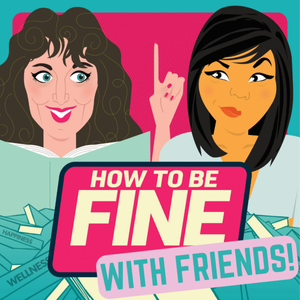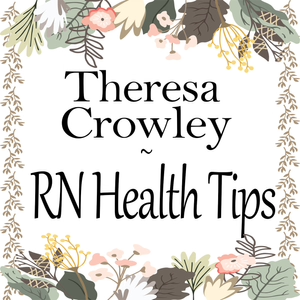
6. "Don't call me grandma" - Interview with Lydia Newman, social work student
05/01/19 • 14 min
Lydia Newman is a young social work student in the second year of her BSC social work course. In this episode, Lydia shares her experience of being on a work placement where she gets to help the lives of young people in a learning centre.
Techie stuff: This interview used the same set up as episode 5 - two dynamic microphones plugged into a Zoom H4n. I used the 4CH mode on the Zoom which meant that it recorded the two mics on one track and also recorded using the Zoom's own internal mic. I was pleased with how the interview went; Lydia is a really good quest, speaks well and has interesting things to say. I was confident about the equipment and set up after how the recording of episode 5 had gone.
After the recording I discovered that I had a monster-amount of editing and fussing to do. For some reason - I still do not know why - both mics sounded really quiet. In episode 5 the set up did not pick up any ambient/background noise. This time - again, I do not know why - the two dynamic mics were picking up so much background noise - the chair I gave Lydia was a bit creaky and every creak was heard, in a next-door room there were two people quietly working but you can still hear them.
I tried out Levelator and Auphonic (two free software programs which help balance audio levels) on the recording. At first I was happy with the sound produced but when I listened back the next day on a different laptop I found some major sibilance at the start (loud "S" sounds). I was amazed at how painful it was to hear some of these "S" sounds. I worked on turning down the amplification on about five "S" sounds at the beginning. You will hear that my surname "Yates" now sounds a bit odd as a result. In the recording I originally say "...sunny spring day..." in the introduction but I actually cut out the word "spring" because of the amount of work trying to make it sound less deadly.
A puzzling moment in this experiment - not quite back to square one but a bit confused about using the equipment at the moment.
If you would like to comment or provide feedback on the Beds Blab podcast or are interested in being featured in a future recording, please email [email protected]. Background music: Love Chances by Makaih Beats from the Free Music Archive. This music is licenced under Attribution-Non Commercial Licence.
Lydia Newman is a young social work student in the second year of her BSC social work course. In this episode, Lydia shares her experience of being on a work placement where she gets to help the lives of young people in a learning centre.
Techie stuff: This interview used the same set up as episode 5 - two dynamic microphones plugged into a Zoom H4n. I used the 4CH mode on the Zoom which meant that it recorded the two mics on one track and also recorded using the Zoom's own internal mic. I was pleased with how the interview went; Lydia is a really good quest, speaks well and has interesting things to say. I was confident about the equipment and set up after how the recording of episode 5 had gone.
After the recording I discovered that I had a monster-amount of editing and fussing to do. For some reason - I still do not know why - both mics sounded really quiet. In episode 5 the set up did not pick up any ambient/background noise. This time - again, I do not know why - the two dynamic mics were picking up so much background noise - the chair I gave Lydia was a bit creaky and every creak was heard, in a next-door room there were two people quietly working but you can still hear them.
I tried out Levelator and Auphonic (two free software programs which help balance audio levels) on the recording. At first I was happy with the sound produced but when I listened back the next day on a different laptop I found some major sibilance at the start (loud "S" sounds). I was amazed at how painful it was to hear some of these "S" sounds. I worked on turning down the amplification on about five "S" sounds at the beginning. You will hear that my surname "Yates" now sounds a bit odd as a result. In the recording I originally say "...sunny spring day..." in the introduction but I actually cut out the word "spring" because of the amount of work trying to make it sound less deadly.
A puzzling moment in this experiment - not quite back to square one but a bit confused about using the equipment at the moment.
If you would like to comment or provide feedback on the Beds Blab podcast or are interested in being featured in a future recording, please email [email protected]. Background music: Love Chances by Makaih Beats from the Free Music Archive. This music is licenced under Attribution-Non Commercial Licence.
Previous Episode

5. "Always on your toes" - Ravi Duggal, experienced tutor, reflects on working with young people
Ravi Duggal has been working with young people for many years; whether as a team leader with the Princes Trust or his current work at Develop Bedford. In this episode of Beds Blab, we get to learn about another project Ravi is involved in, working at RAF Henlow with a youth club. What lessons has Ravi learnt about how to engage and inspire learners? Play this episode and find out.
Techie stuff: This interview was recorded in the same way as episode 4; two dynamic cardioid microphones recording into a Zoom H4n. Headphones were used and a Behringer headphone amplifier was connected to the Zoom. The two mics were held on table-mic-stands and these stands were sat on blocks of foam to help stop knocks and vibrations getting into the recordings.
Ravi is recording into the highly recommended ATR2100 dynamic mic while I record into a much cheaper-by-price JTS/TM929 dynamic mic. Ravi speaks about 15cm from his mic and seems to sound quite clear. I try to use the podcast-advised mic technique of speaking a fist's-width from the mic and talking past the mic rather than directly at it. I think that I sound a bit "muddy" at times. Whether this is due to the recording or this is just a feature of my voice, I'm not sure.
I edited out a few "erms" but I was surprised at how little background noise I could hear. When I was recording I saw a headphone cable striking the table a few times but I could not pick this up in the final recording. I think this is an example of why dynamic cardioid mics are advised for podcasting as they pick up less ambient noise.
No building work or traffic noise in this recording - so as near to being a clean recording as I have had so far.
I used a new recording for the introduction, recorded on the ATR2100 dynamic mic and I also recorded an outro, saying goodbye. The tone of my voice sounds so weak in this outro that I thought about re-recording it. In the edit I have actually added 6db of bass to my voice - probably needed a lot more!
I changed the music in this recording. Editing the four previous episodes I got to hear the previous music so often and it was starting to grate. I put a short musical interlude in the recording, just as a experiment really - I hope to find out if a listener will find this interlude as random, unnecessary and distracting or pleasant and natural.
So, overall, I feel that this recording is a development from the episodes before. Agree? disagree? Help me!!
Background music: Been Awhile by Yung Kartz from the Free Music Archive website. This music is licenced under Attribution-Non Commercial Licence. http://freemusicarchive.org/music/Yung_Kartz/September_2018/Been_Awhile
Next Episode

7 - "That was a golden moment" - Interview with English GCSE tutor, Judith Lombardi
Learners and staff at Develop Bedford create a mixture of interviews, reviews, quizzes and music features. Main feature is an interview with a Bedfordshire tutor. This episode is hosted by learner, Matthew, and member of staff, Paul.
Use the episode's Chapter Markers to jump to just the parts you want to hear.
Any feedback and comments gladly received: [email protected] or visit our Facebook page. Thank you!
Credits:
Main intro and outro music: Makaih Beats, Love Chances, Attribution-NonCommercial 4.0 http://freemusicarchive.org/music/Makaih_Beats/Fake_Love_makaihbeatsnet/LoveChances_makaihbeatsnet
Quiz music: Flutey Funk, Kevin MacLeod (incompetech.com), Licensed under Creative Commons: By Attribution 3.0 License http://creativecommons.org/licenses/by/3.0/
Short music clip at start of interview: Yung Kartz, Been Awhile, Attribution-NonCommercial 4.0 http://freemusicarchive.org/music/Yung_Kartz/September_2018/Been_Awhile
Music after Kazoo quiz: Too Cool, Kevin MacLeod (incompetech.com), Licensed under Creative Commons: By Attribution 3.0 License http://creativecommons.org/licenses/by/3.0/
Tick-tock sound effect used in film review: http://www.orangefreesounds.com/tick-tock-sound/
Radio static sound effect: Recorded by SailorMoonFan. License: Public Domain http://soundbible.com/2099-AM-Radio-Tuning.html
“We have a cat”, “Get my insulin” and short music before interview, all written by Ben Yates
If you like this episode you’ll love
Episode Comments
Generate a badge
Get a badge for your website that links back to this episode
<a href="https://goodpods.com/podcasts/beds-blab-an-experiment-in-amateur-podcasting-in-bedfordshire-237173/6-dont-call-me-grandma-interview-with-lydia-newman-social-work-student-26431001"> <img src="https://storage.googleapis.com/goodpods-images-bucket/badges/generic-badge-1.svg" alt="listen to 6. "don't call me grandma" - interview with lydia newman, social work student on goodpods" style="width: 225px" /> </a>
Copy




